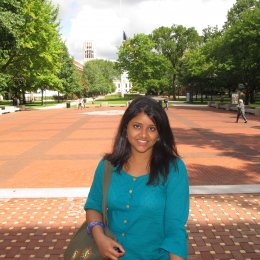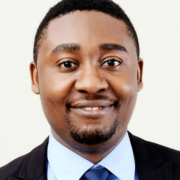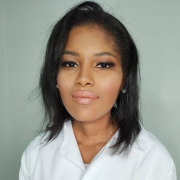How did you become interested in research relating to Hypertension and Cardiovascular Disease?
I was first introduced to cardiovascular research when, as part of my Ph.D. program in Georgia Regents University, I rotated through the laboratory of Dr. William E. Rainey. Dr. Rainey’s research focuses on the physiology and pathology of the adrenal cortex. My previous training had been in Life Sciences (Neurobiology) and I was fascinated by the fact that the aldosterone-producing adrenal glomerulosa cells, very much like neuronal cells, are electrically active and produce steroid aldosterone upon depolarization, in a calcium-dependent manner. It was then that I started working towards understanding the regulation of aldosterone synthase in normal physiology and in endocrine hypertension caused by unilateral aldosterone excess (Primary aldosteronism, PA). My passion for this research focus strengthened as I realized how truly prevalent PA is, and also with the recent game-changing findings which elcucidated that germline and somatic mutations form the underlying cause of aldosterone excess in aldosterone producing adenoma (APAs)-related PA. After graduation, I continue to work in the area of endocrine hypertension, with a focus on the causes of bilateral adrenal aldosterone excess (idiopathic hyperaldosteronism).
Describe your research & the program/lab (info of your supervisor) that you are in?
My current postdoctoral research training is under the mentorship of a young and dynamic clinician researcher, Dr. Tobias Else. There are two main research projects pursued: the role of autoimmunity in the pathogenesis of PA and the role of germline mutations as a predisposing factor for the development of PA caused by bilateral adrenal aldosterone excess. My primary research focus lies in the latter project.
What do you consider to be your substantial scientific contribution so far (provide Pubmed PMID if possible)?
During my dissertation research in the laboratory of Dr. William E. Rainey, I focused on mutations in aldosterone producing adenomas (APA) as a cause of PA. Specifically, my research focused on defining the molecular mechanisms by which mutations in the inward rectifying K+ channel (KCNJ5) leads to elevated aldosterone production. We were the first to define differences in transcriptomes of APA with/without KCNJ5 mutations using microarray and real time gene expression analyses (PMID: 22628608). We also identified a novel germline mutation that causes familial PA (PMID: 24037882). In my most recently published article, we developed and utilized a stable adrenal cell line with a doxycycline–inducible mutated KCNJ5 expression system and a combination of molecular studies, electrophysiology and steroid measurements by liquid chromatography-tandem mass spectrometry, to define the effects of mutated KCNJ5 on the acute and chronic regulatory steps in aldosterone production (PMID: 27099398).
What is your favourite manuscript from a lab or mentor other than your own (provide Pubmed PMID if possible)?
There have been remarkable manuscripts by various labs spread over almost all continents. One of my favorite reads is the very first description of Primary aldosteronism by Jerome Conn which details a thorough metabolic analysis of a female patient with an aldosterone producing adenoma over 227 days (PMID: 13275846)!
Amongst more recent findings, my favorite manuscript has been a 2011 article by Choi et al (PMID: 21311022), which was the first ever study to define the role of mutations in inward rectifying K+ channel (KCNJ5) in APA-associated PA. This study was a game changer that has led to several additional reports that have used tumor sequencing to elucidate mutations causing aldosterone excess.
Where do your research strengths lie? Why? What are your research weaknesses? How will you improve?
I have been very fortunate to have received strong training in translational research under the guidance of excellent mentors Dr. William E Rainey and Dr. Tobias Else. My research experience through my Ph.D. work trained me in several techniques and approaches in molecular biology. My postdoctoral training has been very exciting as I have started learning electrophysiology to define the effects of gene mutations on biophysical properties of the adrenal cell. I have also been involved in extended clinical case reports which have given me a more thorough perspective of both, basic and clinical sciences.
In terms of weaknesses, I believe I will benefit tremendously by learning more about bioinformatic and statistical analyses of data as well as electrophysiology. To this end, my mentor, Dr. Else, has already helped me initiate my training in electrophysiology. We have also developed a training plan that includes working with our bioinformatics expert.
Describe your unforgettable (proudest) moment in science, and the most challenging situation that you have had to overcome (lessons learnt) so far?
The April of 2013 was undoubtedly one of the most memorable and rewarding experiences in my student career, when I was awarded a Young Investigator Travel Award and the Gordon Williams and John Funder Award for the best Oral presentation at International Symposium of Aldosterone and Related Substances in Hypertension (ISARSH), Sendai and The Sixth International Aldosterone Forum in Japan (IAFJ), Tokyo, respectively. I was also invited as a Guest Speaker at Tohoku University, Sendai. I owe this success to my wonderful mentor, Dr. William E. Rainey, and a group of very brilliant and talented collaborators. I am extremely grateful for all that I have learnt from them.
Any scientific research presents challenges in terms of standardization of techniques/experiments, interpretation of data, critiquing one’s own work and working against time towards deadlines. I have found that a good scientific attitude, including hard work, diligence, perseverance, humility and guidance from a strong mentoring team teaches one to push through and constantly grow as a researcher.
At which conference did you first present? How was your experience?
The very first conference at which I presented my work was the Endocrine Society’s annual conference, the ENDO 2009. The experience was inspiring and humbling, to say the least. The ENDO conference is an excellent platform and meeting place of clinical and basic science researchers. During my poster presentation, I had the opportunity to speak with several researchers and received plenty of feedback on my project. It also provided a great opportunity to network with the leaders in endocrine hypertension and to generate new collaborations.
How did you learn about ISH/NIN and its activities?
I first heard about the ISH during a networking opportunity with Dr. Fady Hannah-Shmouni at the 2015 Adrenal Cortex Conference, Boston, MA, and am very excited to be part of this organization.
What area(s) do you wish to specialize in the future?
I hope to continue towards a career in translational research in adrenal and cardiovascular pathologies. I aim to develop a deeper understanding of electrophysiology which aid in the study of the cellular biophysics in physiological and pathological conditions, as well as in the bioinformatic and statistical analyses of next generation sequencing data. My experience with mentoring undergraduate students has substantiated my desire to continue in an academic setting in the near future.
Who is your role model in Science? Why?
I feel very fortunate to have had an excellent mentoring team, throughout my graduate and postdoctoral career. My Ph.D. mentor, Dr. William E Rainey, and my current mentor, Dr. Tobias Else have been the most influencing role models who have encouraged me through example. Dr. Rainey was the first to introduce me to endocrine hypertension. He inspired me to be thorough, passionate towards my research and yet critical towards my own data, and to always keep myself challenged with new ideas and approaches to solve a problem.
My current mentor Tobias Else is a dynamic young clinician researcher who continues to help me reach my fullest potential. Dr Else continues to drive my enthusiasm and understanding of translational research. He has opened avenues for me to develop a thorough understanding of the clinical perspective in research. I am very excited to be involved in extended case reports, and to attend adrenal tumor board meetings and grand rounds in the medical hospital. I have been given tremendous freedom in research which is helping me find my own passions and prepare myself as an independent researcher in the future. I am very grateful to Drs Rainey and Else for their continued support in my career.
The adrenal team at Michigan including Dr Gary Hammer, Dr. Richard J. Auchus, Dr Adina Turcu and Dr. Brian Byrd has also encouraged me through their enthusiasm and commitment towards understanding adrenal pathophysiology. I also find a role model in each of my peers in various adrenal teams across several countries, all of whom inspire me through their diligence and excellence in science.
What are your scientific goals? Advise for talented emerging scientists?
I am enjoying being part of an amazing team of translational researchers at the University of Michigan. I find myself in an excellent scientific environment that encourages independence and nurtures all investigators to develop their potential to their fullest. My goals are to continue on this path and utilize every available opportunity to work towards understanding the pathology of endocrine hypertension.
My advice to emerging scientists would be to keep an open mind, to always be creative, have a strong sense of ethics in science and always be open to constructive criticism. I would also recommend finding a mentoring team that realizes their potential and is invested in their future.





















